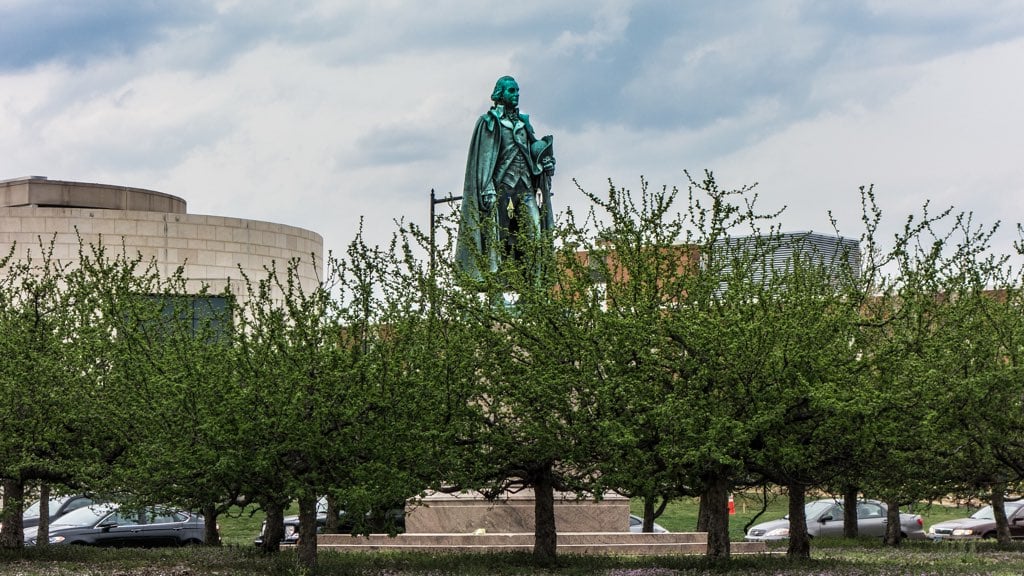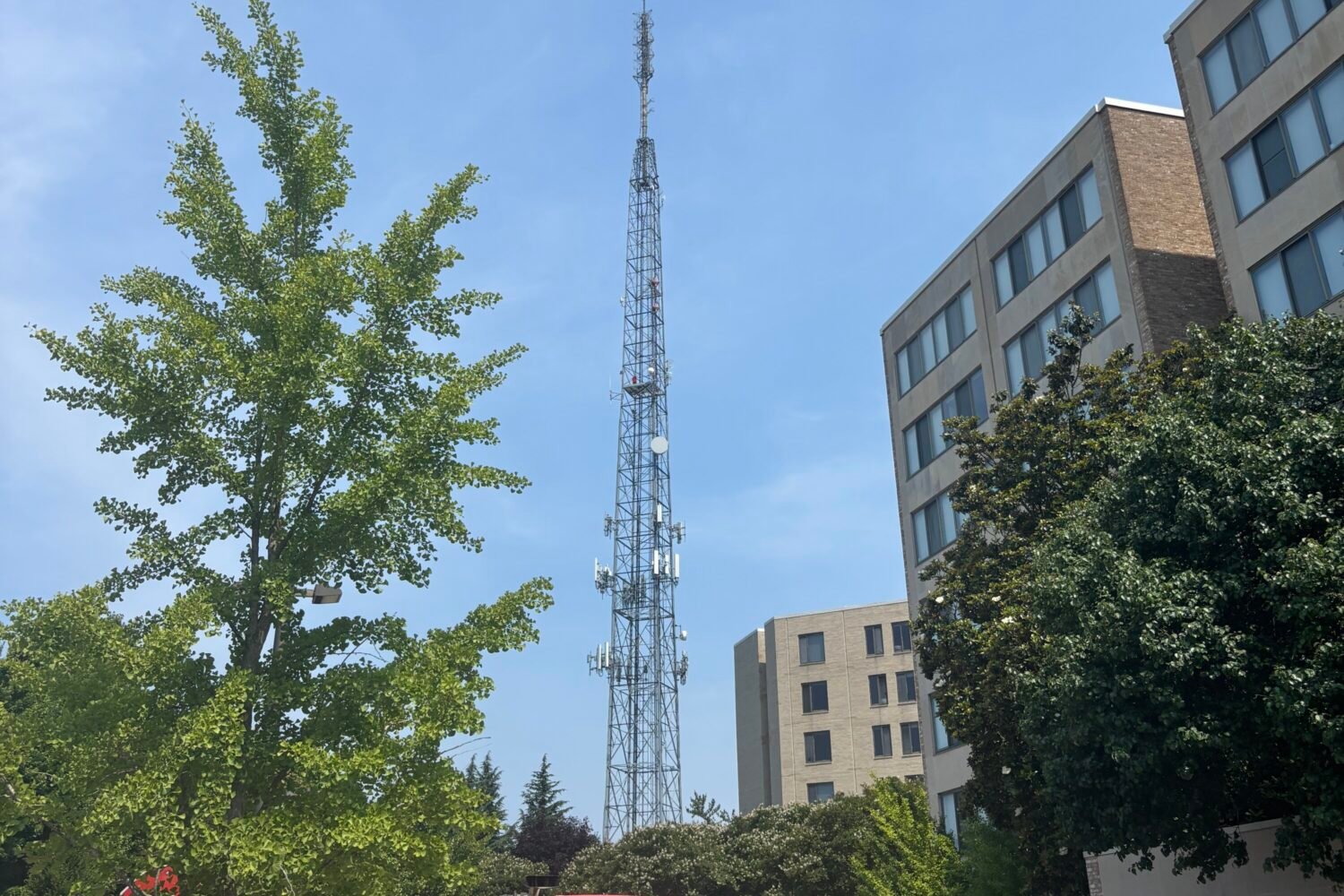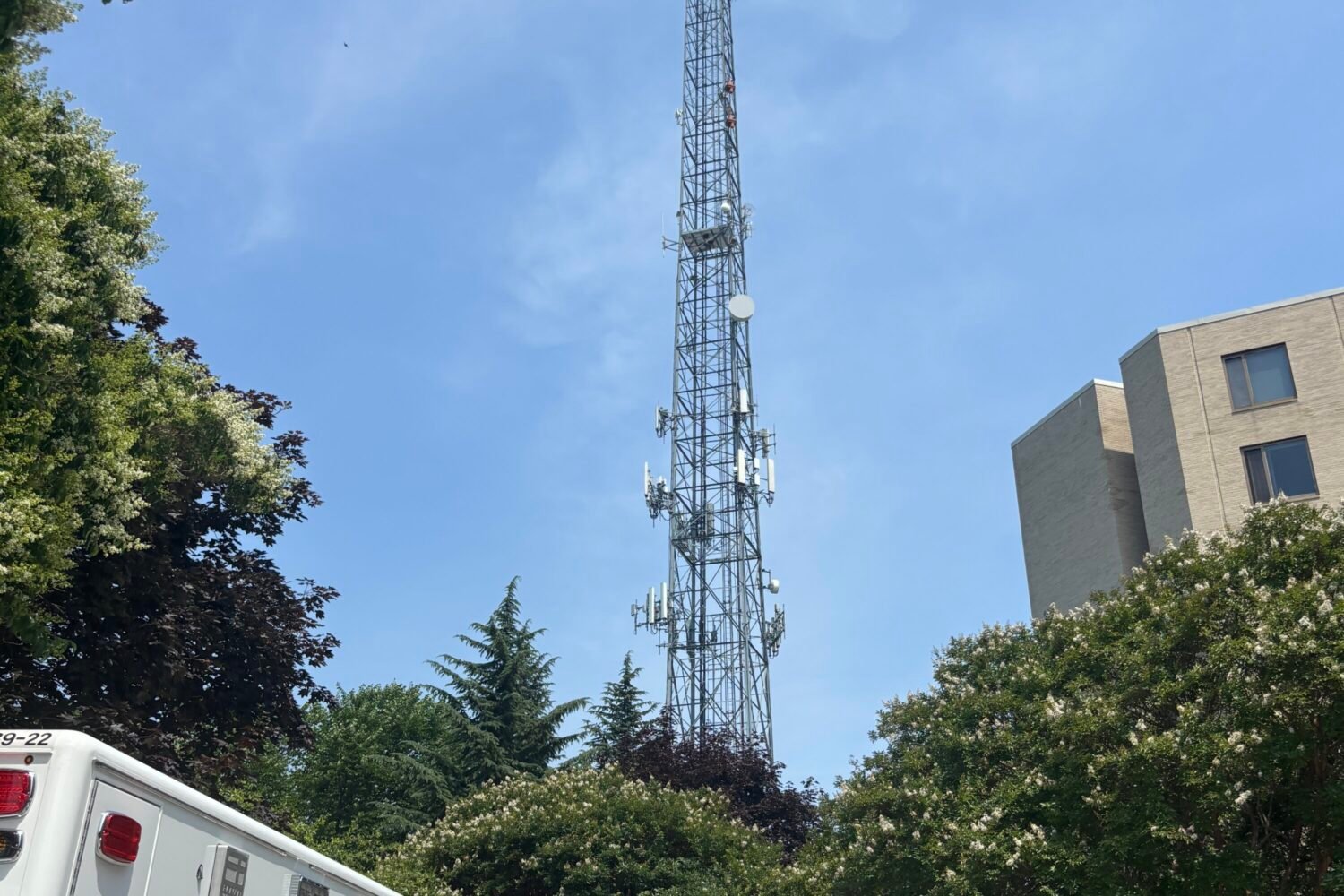American University kicked several reporters off its campus Tuesday while they covered a protest there. University officials asked Steve Burns from WMAL radio and Tom Fitzgerald from Fox 5 to leave. Brakkton Booker, a reporter for WAMU, was asked to leave as well. WAMU is a public radio station owned by American University.
WAMU editorial director Alicia Montgomery says Booker is an NPR reporter working with them via an exchange program. He was covering the protests in this capacity when a university official asked him and other reporters to leave the university premises.
.@AmericanU protests still going. At least it was til campus officials asked me to leave. Follow @wamu885 for updates pic.twitter.com/OUEPrtVFwA
— Brakkton Booker (@brakktonbooker) May 2, 2017
“We handled this story as we would a story on that happened on a similar campus in the area because it’s of interest to our audience,” Montgomery says. “There was a miscommunication between our reporter and the university public relations team about what was permissible and what was not permissible. And so, our reporter covered the story and was eventually escorted from the campus.”
https://twitter.com/unclehizzy/status/859487346936483840
Students emerging from a “safe space conversation” about the incident were supposed to meet and talk with reporters, including Booker. When the students began to march, Booker tried to cover that protest under the assumption he was following the guidelines he’d been given by the university.
Montgomery stressed that WAMU has a “really wonderful and respectful relationship with American University” and noted that Kelly Alexander, American’s director of public relations, appeared on the Kojo Nnamdi show Wednesday to discuss the incident. American University’s PR department has not yet responded to requests for comment from Washingtonian.
I was actually able to talk to students before the meeting…but as soon as the protest started, they found me and told me to leave. https://t.co/PfeqXiD7Hd
— Steve Burns (@StvBurns) May 2, 2017
The story began after several bananas were hung in three places around campus early Monday. The bananas were in nooses and were carved with the initials of a campus black sorority, Alpha Kappa Alpha. That same day AKA member Taylor Dumpson became student government president. She’s the first black woman to hold the position.
It wasn’t just professional media who were kicked out. AU student Tom Lynch, an intern at NBCWashington, said on Twitter that he was “removed from campus.”
I was removed from campus and told I was "a liar" when I showed my student ID, amazing stuff from a university with a comms school https://t.co/VnM7qlCDqa
— Tom Lynch (@TomLynch_) May 2, 2017
Private schools generally have the right to bar journalists from their premises. However, this becomes more complicated if the journalist is also a student, or if a town-hall meeting constitutes a public forum. Nonetheless, a public forum violation must typically involve members of a decision-making body coming together to deliberate, and most town-hall meetings don’t meet this standard.
“I understand a university is a private space with some expectation of public involvement, but as a journalist I’m always on the side of transparency,” says Burns. “It seems like lesson number one in crisis communication is that you should be upfront with your audience and the media that’s covering you. It seems like American went in the opposite direction.”



















